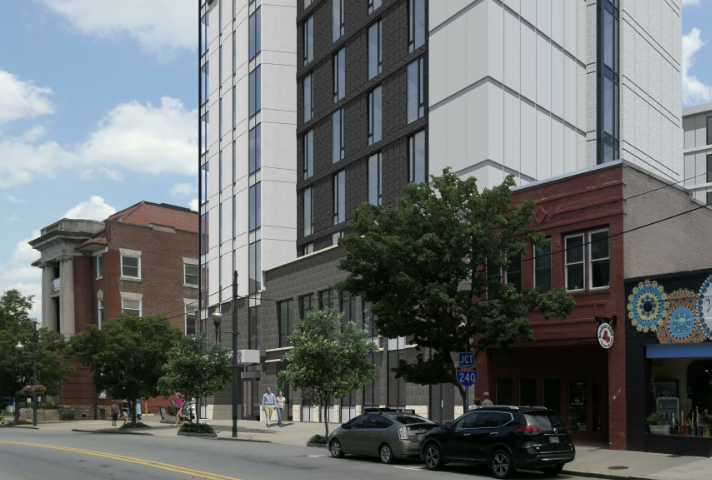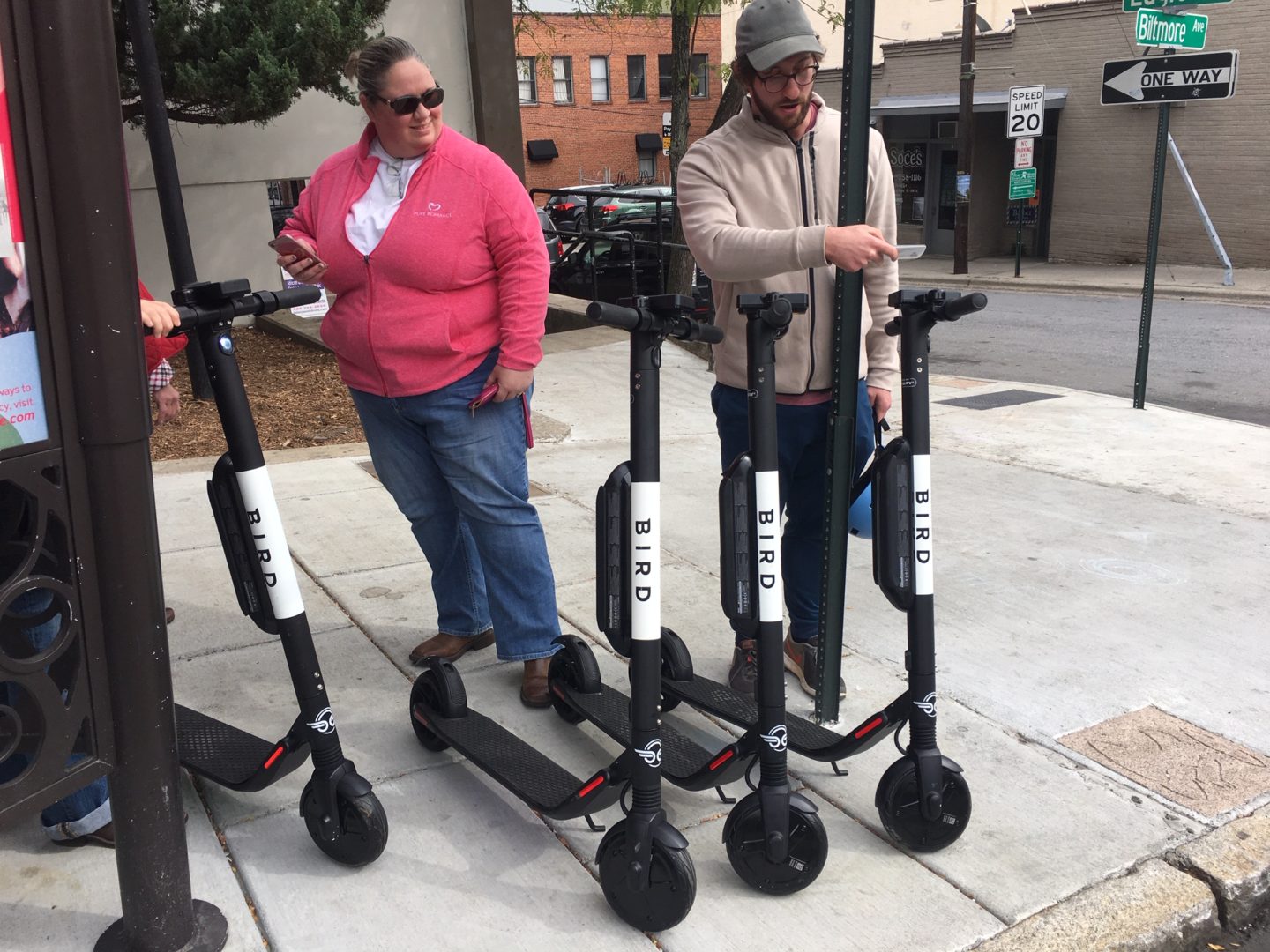Jason Sandford
Jason Sandford is a reporter, writer, blogger and photographer interested in all things Asheville.

The historic Flatiron Building in Asheville was built in 1927./ photo by Jason Sandford
A controversial proposal to turn the historic Flatiron Building in to a boutique hotel is scheduled to return for discussion and a possible vote at Tuesday evening’s Asheville City Council meeting. Here’s where things stand:
Last time at Asheville City Council: The developer who planned to remake the Flatiron into an 80-room boutique hotel pulled the proposal following a lengthy public hearing during Asheville City Council’s meeting in May after a majority of council members indicated they opposed the project. Councilwoman Julie Mayfield joined fellow City Council members Brian Haynes, Keith Young and Sheneika Smith in explaining their opposition to the plans following the public comment period. With that clear indication of the outcome, Wyatt Stevens, the attorney representing developer Phillip Woollcott and Flatiron Building co-owner Russell Thomas, stood and withdrew the proposal.
The proposal: As it stands now, Woollcott, of Charleston-based JPW Development, proposes to build a 71-room boutique hotel, with one floor of the building to remain office space for small business owners. That’s a compromise to address one of the biggest complaints from project opponents – that a building full of small business owners would be displaced. The project still includes a basement speakeasy and a rooftop bar.
Vote by phone: Asheville City Council at its last meeting approved a plan to allow Mayor Esther Manheimer to vote by phone on the proposal. She had planned to be out of town. That’s an unusual measure.
A criminal past: Opponents of the Flatiron hotel proposal, including Andrew Fletcher, an Asheville musician and a member of the Asheville Downtown Commission, have pointed to records showing that one of the members of the Flatiron Building ownership group has a criminal record. Marshall Neil Kanner, of Miami Beach, Fla., at the time, pleaded guilty in federal court in 2008 to conspiring to illegally distribute controlled substances through a website, and launder money from the illegal Internet operation. The drugs included Vicodin and Valium. Kanner is a member of Midtown Development Associates, the group that bought the Flatiron Building in the 1980s. Fletcher argues that City Council has not done its due diligence in examining all aspects of the proposed deal. The character and reputation demonstrated by this Flatiron owner shows that Council must take extra measures that their statements are true, Fletcher says.
The developer’s response: A spokeswoman for the Flatiron hotel proposal offered the following response to the revelations regarding Kanner. First, Kanner served prison time and other charges against him were ultimately dismissed. His record is not relevant to the conditional zoning application of the Flatiron Preservation Group, the spokeswoman says. Here’s more:
“The Flatiron was originally purchased over 35 years ago and was owned equally by Peggy Reid, Russell Thomas’s mother, and Ben and Sylvia Kanner. The Kanner’s son Marshall became a minority stakeholder, owning a portion of his parents’ share. Russell Thomas has acted as the manager and steward of the building since its original purchase and inherited his mother’s share of ownership when she passed in 2017. Mr. Kanner remained a silent, minority stakeholder with no role in the building’s operations. Following the sale to the Flatiron Preservation Group, Mr. Kanner will not retain any interest in the Flatiron building.”
























